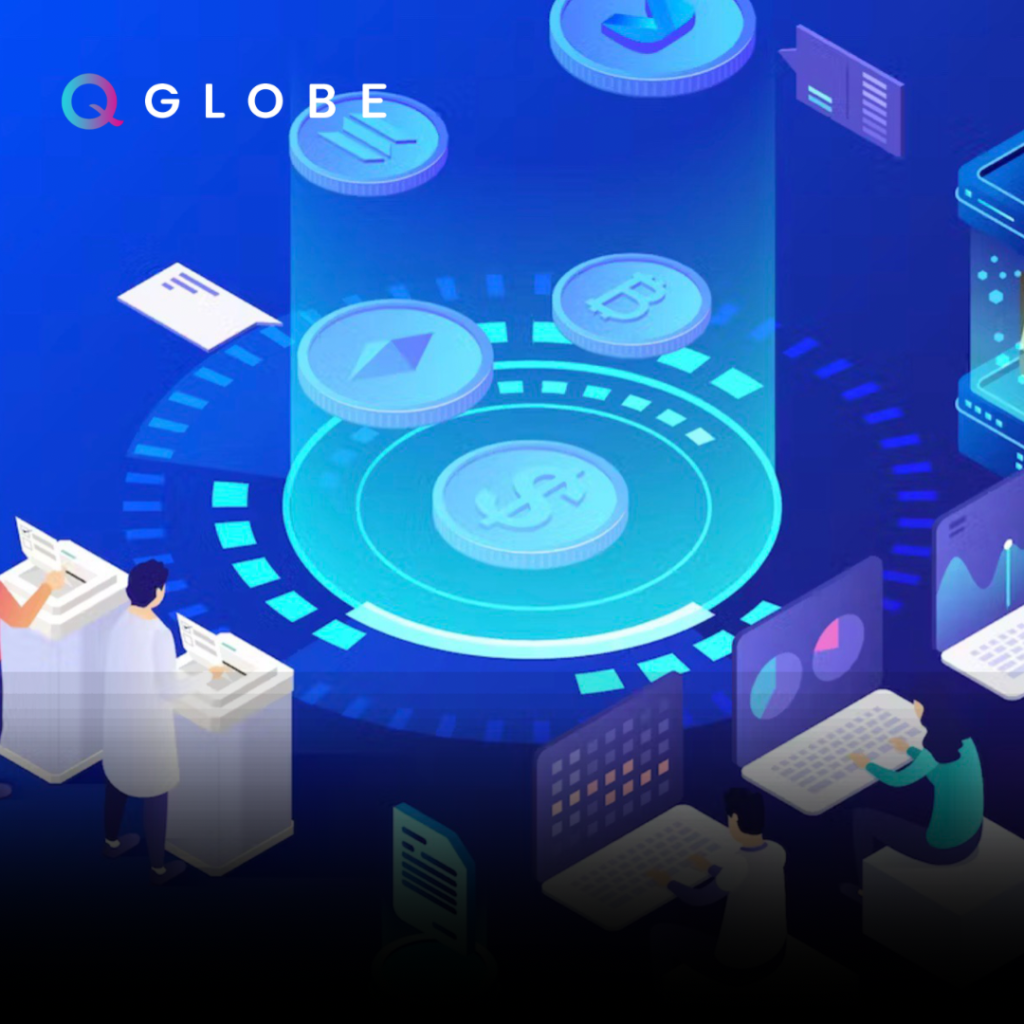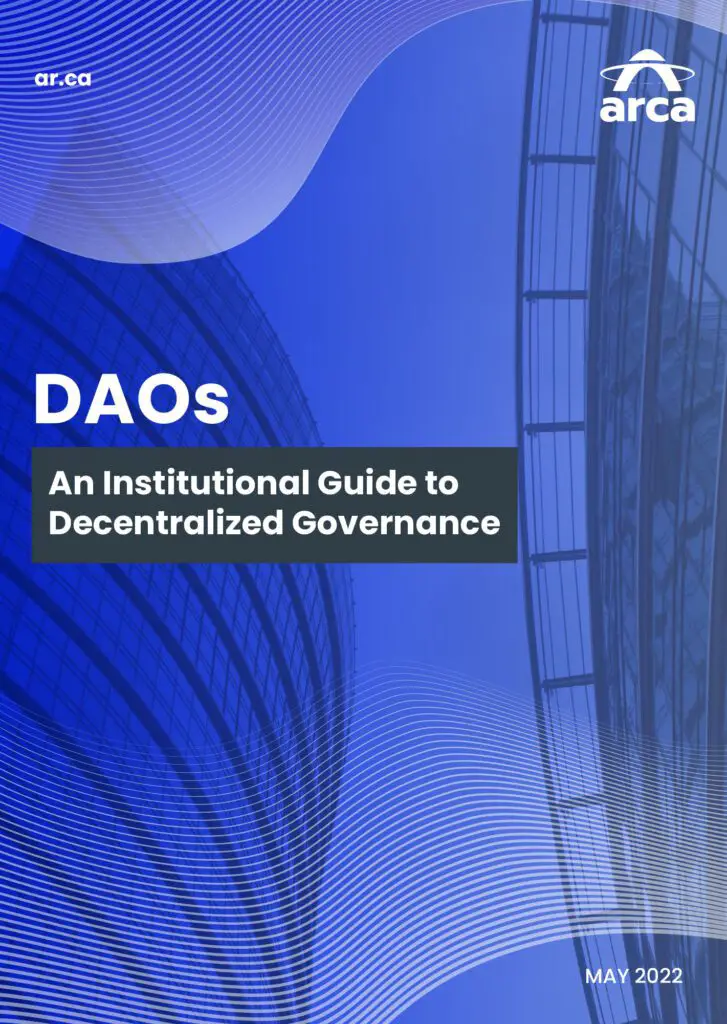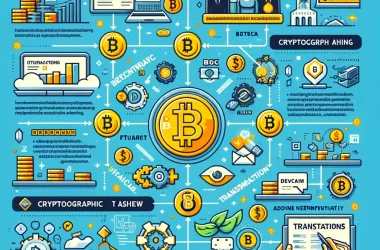DAOs and Governance Tokens: Powering Decentralized Networks with New Cryptos

Decentralized autonomous organizations (DAOs) are a new type of organization that is revolutionizing the way people work together. DAOs are powered by blockchain technology, and they allow users to create and manage organizations without the need for a central authority.

One of the key features of DAOs is the use of governance tokens. Governance tokens give holders the right to vote on the rules and policies of the DAO. This allows users to have a say in the direction of the organization, and it ensures that the DAO is run in a democratic and transparent manner.

Governance tokens can also be used to incentivize participation in the DAO. For example, users may be rewarded with governance tokens for contributing to the DAO’s community or for voting on proposals. This helps to encourage users to actively participate in the DAO, and it ensures that the organization is run in a way that benefits all members.
DAOs and governance tokens are still relatively new, but they have the potential to revolutionize the way people work together. They offer a new way to create and manage organizations that is more democratic, transparent, and efficient. As DAOs continue to develop, they will likely play an increasingly important role in the future of the internet.
Benefits of DAOs and Governance Tokens
There are a number of benefits to using DAOs and governance tokens. These include:
- Increased democracy and transparency: DAOs are more democratic than traditional organizations because they give all members a say in the organization’s rules and policies. This helps to ensure that the organization is run in a way that benefits all members.
- Reduced bureaucracy: DAOs can reduce bureaucracy because they do not have to rely on a central authority to make decisions. This makes them more efficient and agile than traditional organizations.
- Increased participation: DAOs can increase participation because they make it easy for members to contribute to the organization. Members can vote on proposals, contribute to the community, or even create their own sub-DAOs.
- Enhanced security: DAOs are more secure than traditional organizations because they are based on blockchain technology. This makes them resistant to hacking and fraud.
Challenges of DAOs and Governance Tokens
There are also some challenges associated with DAOs and governance tokens. These include:
- Complexity: DAOs can be complex to set up and manage. This is because they require a deep understanding of blockchain technology and smart contracts.
- Security: DAOs are only as secure as the blockchain they are built on. If the blockchain is hacked, the DAO could be compromised.
- Fraud: There is always the potential for fraud in DAOs. For example, members could create multiple accounts to vote on proposals or they could collude to manipulate the outcome of a vote.
- Governance deadlock: The governance token can create governance and deadlock if there is not enough alignment and consensus among the token holders. Since the proposals are approved by a majority vote, a group that is slightly major than 50% can dominate and suppress the minority to the point of deadlock.
Conclusion
DAOs and governance tokens are a new and exciting way to create and manage organizations. They offer a number of benefits, including increased democracy, transparency, efficiency, and security. However, there are also some challenges associated with DAOs and governance tokens, including complexity, security, fraud, and governance deadlock. Overall, DAOs and governance tokens have the potential to revolutionize the way people work together. As they continue to develop, they will likely play an increasingly important role in the future of the internet.## Daos And Governance Tokens: Powering Decentralized Networks With New Cryptos
Executive Summary
Daos and governance tokens are emerging as key pillars in the decentralized finance (DeFi) ecosystem, enabling community-led decision-making and incentivizing participation in blockchain networks. This article explores the multifaceted nature of Daos and governance tokens, their significance, and potential implications for the future of decentralized governance.
Introduction
The advent of blockchain technology has fostered a paradigm shift towards decentralized networks, where decision-making and governance are distributed among network participants. Daos (decentralized autonomous organizations) represent a novel organizational structure that leverages blockchain protocols to facilitate collective decision-making and resource allocation within decentralized communities. Governance tokens, closely intertwined with Daos, empower community members with voting rights and incentives for participating in network governance.
FAQs
-
Q: What is a Dao?
A: A Dao is a decentralized, self-governing organization operating on a blockchain protocol. It enables decision-making and resource allocation through collective voting by community members holding governance tokens. -
Q: What are governance tokens?
A: Governance tokens represent digital assets that confer voting rights within Daos. They incentivize participation in network governance and allow token holders to influence decision-making through voting. -
Q: Why are Daos and governance tokens important?
A: Daos empower decentralized communities to govern themselves autonomously, fostering community ownership and alignment. Governance tokens provide incentives for participation, promoting network engagement and decision-making transparency.
Key Subtopics
Voting Mechanisms
- On-chain: Votes are cast directly on the blockchain, ensuring transparency and immutability.
- Off-chain: Votes are cast outside the blockchain system, typically on dedicated voting platforms.
- Weighted: The number of governance tokens held by an individual or group determines the weight of their vote.
- Delegated: Individuals can delegate their voting power to a representative of their choice.
- Proposal-based: Voting is initiated through proposals submitted by community members for consideration.
Tokenomics
- Distribution: The distribution of governance tokens among community members influences the level of decentralization and participation.
- Value: The market value of governance tokens affects their attractiveness as incentives and their influence on decision-making.
- Inflation: The issuance of new governance tokens can dilute the value of existing tokens and impact their utility.
- Burning: The removal of governance tokens from circulation can increase scarcity and potentially enhance their value.
- Staking: Governance tokens can be staked to generate rewards, further incentivizing participation in network governance.
Community Engagement
- Communication: Establishing effective communication channels facilitates information dissemination and idea exchange within the Dao community.
- Participation: Encouraging active participation through incentivized rewards and gamification fosters a sense of community and collective ownership.
- Transparency: Providing transparent access to Dao proposals, voting records, and financial transactions strengthens trust and accountability.
- Dispute Resolution: Implementing mechanisms for resolving conflicts and disputes within the Dao ensures fair and transparent decision-making.
- Education: Onboarding and educating community members on Dao governance processes promotes informed decision-making and active engagement.
Conclusion
Daos and governance tokens are revolutionary concepts that empower decentralized communities to govern themselves and create resilient, community-driven networks. By incentivizing participation and enabling transparent decision-making, these novel mechanisms have the potential to transform governance models and foster a new era of decentralized collaboration.
Keyword Tags
- Decentralized Autonomous Organizations (Daos)
- Governance Tokens
- Blockchain Governance
- Tokenomics
- Decentralized Decision-Making

